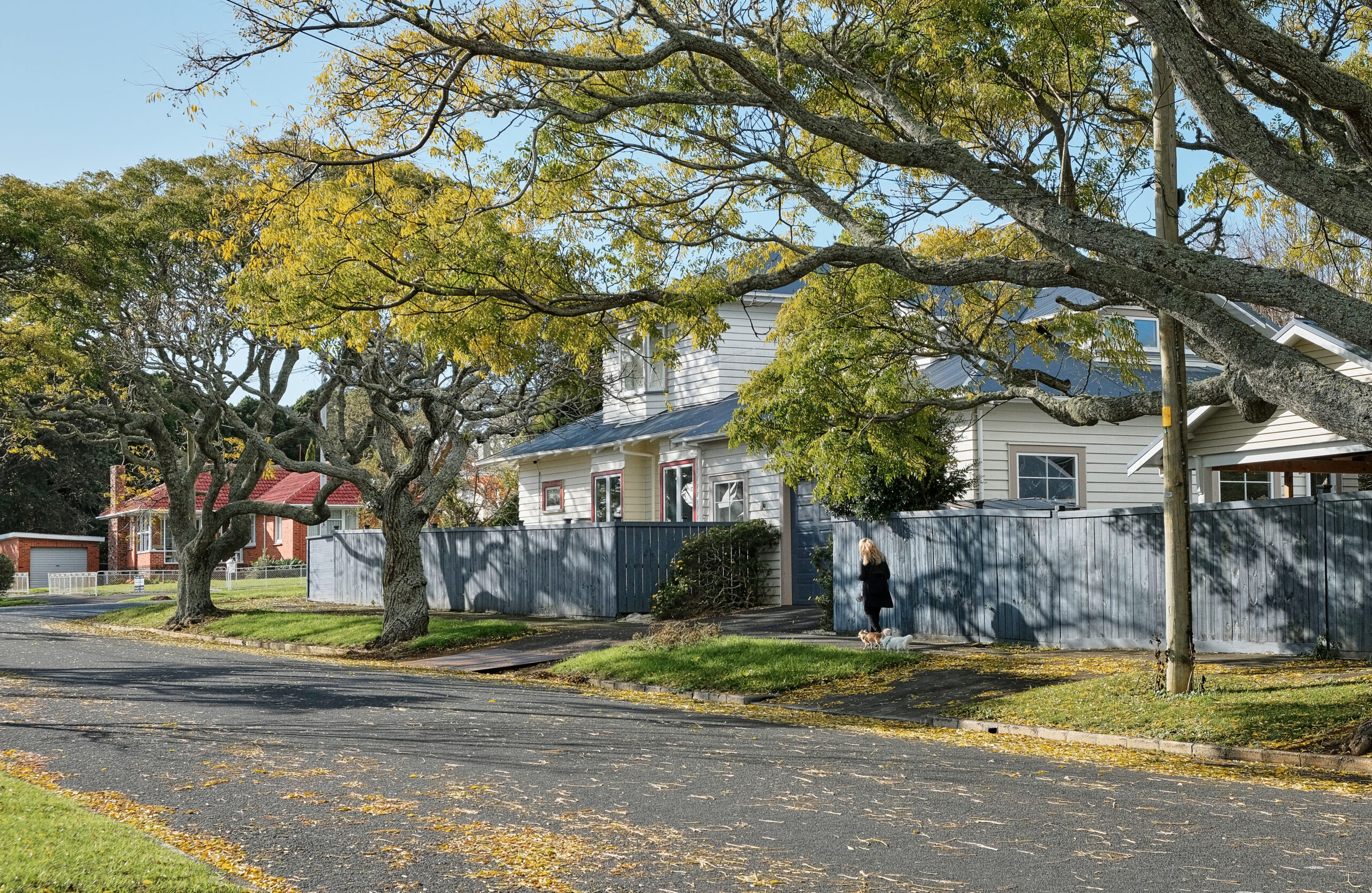We are very pleased to be able to share the following insights recently authored by Tony Alexander. Tony was the Chief Economist at the BNZ for 26 years and is now an independent Economics speaker.
6th April 2020.
Last Wednesday I sent an email to the 240 real estate agents and mortgage brokers on my subscription list, asking for their comments regarding current conditions in the residential real estate market and thoughts and plans of buyers, vendors, and owners. 53 excellent, detailed, replies were received and this Covid-19 Supplement is a summary of those responses.
Most vendors and buyers are taking a wait and see attitude though purely electronic sales continue to be made. Buyers are anticipating lower prices, but many have left the market amidst loss of KiwiSaver funds, jobs, and incomes. The biggest group to pull back is first home buyers. Vendors, unless potentially stressed, are also leaving the market. Small investors are deeply worried about rental income losses, larger ones less so. Well capitalised investors, some inactive for some time, are contacting agents anticipating bargain purchases in coming months. Some, not all, banks have pulled back on accepting new loan applications but it is not clear if this is due to lack of willingness to lend, or just a temporary staff capacity issue. Spec builders are very worried.
Buyers
Buyers submitting offers are tending to lower them. However, having so recently experienced a period of intense listings shortages, and with vendors backing away, the offer reductions are fairly small.
Buyers with pre-approved finance are waiting to see what happens. Those who are self-employed appear in a worse situation than wage earners, with income slashed and big worries about future customer flows. Most first home buyers have backed off, having seen their KiwiSaver balances decline, but this applies far less to those in jobs not much affected by the downturn (public servants in particular). Those people are hoping for better property availability and slightly better purchasing prices and they remain interested.
Cashed up buyers feel they now have the ultimate upper hand and are showing no inclination toward rapid decisions at this stage.
Some potential buyers are indicating that they will put everything on hold until after the September general election. There in fact are many frustrated buyers who have been unable over the past year or so to find what they want. These people are hopeful of greater supply becoming available.
Some buyers are having to walk away from Unconditional purchase contracts because they have lost their jobs. Some buyers who have a strong desire to transact are seeing an opportunity to purchase while everyone else is sitting on their hands and are targeting the lockdown period to make their purchase.
Some buyers, having signed the contract, are looking to place their own property on the market as soon as the lockdown ends in order to get a quick sale. They are fearful of deposit loss should they fail to settle and uncertain about getting bridging finance if needed.
Vendors
Some vendors are holding off so proper marketing of their property can be done when the lockdown ends.
Many already consented building projects are now not expected to proceed. The biggest price discounts being offered at this stage are coming from spec. builders who have taken on debt to build a house to sell and now need or want to sell it as soon as possible.
Sellers know that potential buyers cannot get access to local councils or building inspectors so are reluctant to pursue purely electronic listing while we are in lockdown.
Vendors of good properties who do not have to move are expected to sit and wait as long as needed for conditions to improve, and this is expected to create a shortage of good stock, not just listings generally.
Investors
The issue considered far bigger than attitudes of buyers and vendors and getting systems up for online sales is the position of investors having tenants who cannot or will not pay rent. There are deepening fears that absence of cash inflows set beside an inability to quickly get new paying tenants and continuing cash outflows will cause severe short-term hardship for the mainly Ma and Pa investors. This is seen as potentially causing extra properties to be placed on the market once the lockdown ends, as opposed to high debt servicing costs being the traditional cause of “forced” selling.
In fact, existing small investors reliant on rental income have pulled back quickly from contemplating new purchases. There is a feeling that on top of legislative changes this will be the final straw for some – a prospect seemingly relished by the well capitalised professional long-term investors.
A number of investors have become newly active in the market, hoping for some bargains, focussed on the long-term which has worked for them in the past, and looking to lock in at current very low interest rates. They feel that listings are going to dry up and the properties on the market will mainly be distressed sales.
Interest from Chinese investors in new developments appears as strong as ever.
There are widespread expectations that rents will fall.
Banks
Many property owners working with their brokers are seeking some mortgage deferral, most going to interest-only once they understand that what is on offer is a mortgage deferral, not a cost-free holiday. Banks are processing interest-only changes quickly, but full mortgage deferral applications are taking longer. Applications for new finance have largely dried up. Some banks are offering only three months deferral with a review in three months.
Banks lacked loan application processing staff before the virus shock and lockdown and still appear to lack sufficient staff to handle enquiries. That may explain why banks no longer appear to have interest in refinancing mortgages from other banks.
Banks are enforcing minimum 20% deposits for owner occupiers and 30% for investors for existing house purchases. In fact, banks are tending to make debt servicing calculations only on the current low level of income being received by workers receiving the government wages subsidy. They don’t intend using higher income levels until people can prove that is in fact what they are earning. Some banks have straight out stated to brokers that they are taking no new clients at the moment. Not all however.
Mortgagors are wary of taking repayment holidays because of the extra interest which will accrue and because some banks are not extending the mortgage term but instead raising planned repayments for when the holiday period ends.
A number of mortgage broker groups have been told by their banks that they are exercising the clause which says the borrowers are clients of the banks and not the brokers, and they are dealing directly with the customer now. That is not the case for all brokers however, some of whom officially in their contracts “own” the customer.
General
City-based salespeople are less concerned about prices falling than those in the regions.
In the likes of Wanaka, expectations are high of some big declines in prices and rents as new buyers back away and many existing owners look to sell their high-priced properties to free up capital for their businesses. Auckland’s inner-city apartment market looks also likely to take a hit from students walking away from leases, Airbnb properties coming on the market, no new students coming in. (Me = could this present some market-entry opportunities for first home buyers later this year from over-geared, rentdeprived, fearful small investors?)
Real estate agents are getting structures in place to facilitate online auctions etc. and turnover is happening when they do. Settlement dates are being set at ten working days after we come out of Level 4.
Many respondents feel that once the six-month mortgage deferral ends, a lot of people will reassess their family’s financial position and choose then to sell.
A number of agents noted an expectation of many Kiwis coming back home once things settle globally, but purchase enquiries from these people have not appeared as yet.
Commercial
I did not seek information on commercial property, but some information was supplied. The situation in this sector appears much weaker than in residential property with far more stress on landlords as tenants exercise clauses allowing them to pay no rent, or simply refuse to pay anyway. Just as with residential, some big discounts on rent up to 50% are being given – sometimes more.
People need somewhere to live, but failing businesses no longer need premises, and landlords are fearful of (and starting to experience) tenant loss with a resulting lengthy period of empty premises and no rent.
Worries about bank-forced sales are far greater than for residential property.
Agreed contracts are being extended to ten working days after we enter Covid-19 Level 2 alert.
Investors are interested in purchasing commercial premises, but banks are failing to return their phone calls enquiring about finance. Some banks have indicated they have no interest in real estate agents, property development, property speculators or construction companies.
Supplements 1 – 4 can be found here: http://tonyalexander.nz/publications.php
This publication has been provided for general information only. Although every effort has been made to ensure this publication is accurate the contents should not be relied upon or used as a basis for entering into any products described in this publication. To the extent that any information or recommendations in this publication constitute financial advice, they do not take into account any person’s particular financial situation or goals. We strongly recommend readers seek independent legal/financial advice prior to acting in relation to any of the matters discussed in this publication. No person involved in this publication accepts any liability for any loss or damage whatsoever which may directly or indirectly result from any advice, opinion, information, representation or omission, whether negligent or otherwise, contained in this publication.


